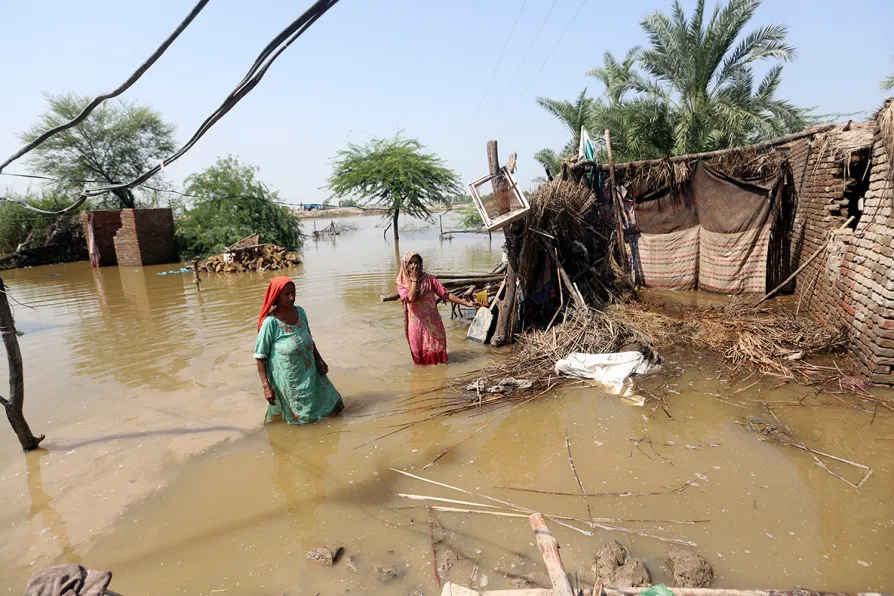
 Women wade through a flooded area after heavy rains in the Shikarpur district of Sindh province, Pakistan, Tuesday, Aug. 30, 2022
Women wade through a flooded area after heavy rains in the Shikarpur district of Sindh province, Pakistan, Tuesday, Aug. 30, 2022
OFFICIALS in Pakistan raised concerns today over the spread of waterborne diseases among thousands of flood victims as waters from powerful monsoon rains began to recede in many parts of the country.
Massive flooding from the rains since mid-June has killed at least 1,162 people, a phenomenon experts blame on climate change.
Some doctors said initially they were seeing mostly patients traumatised by the flooding, but are now treating people suffering from diarrhoea, skin infections and other waterborne ailments in the country’s flood-hit areas.
The development has forced the government to deploy additional medical teams and dispatch medicine, besides providing clean drinking water to survivors, many of whom are living in tents and makeshift homes.
The warning came a day after record-breaking floods prompted the United Nations to formally issue an appeal for $160 million (£137m) in emergency funding to the impoverished Islamic nation, where about a million homes have been damaged or destroyed.
Dr Azra Fazal Pechuho, health minister in the country’s worst-affected province of Sindh, said officials have set up 4,210 medical camps in the province’s flood-hit areas to treat victims now suffering from skin and waterborne diseases, which are common during floods.
The World Health Organisation (WHO) began aiding Pakistani authorities in their efforts to treat people injured in the flooding.
The agency said in a statement it was working to increase surveillance for acute diarrhoea, cholera and other communicable diseases to avoid their spread, and is also providing medicine and medical supplies to health facilities.
“WHO is working with health authorities to respond quickly and effectively on the ground,” said Dr Palitha Mahipala, the WHO representative in Pakistan.
“Our key priorities now are to ensure rapid access to essential health services to the flood-affected population, [to] strengthen and expand disease surveillance, outbreak prevention and control, and ensure robust health cluster co-ordination.”
Authorities said waterborne diseases among flood victims are now common across the country.
Although the rains stopped three days ago, large swathes of the country remain underwater, and the main rivers, the Indus and the Swat, are still swollen.
The National Disaster Management Authority has warned emergency services to be on maximum alert, saying floodwaters over the next 24 hours could cause further damage.













